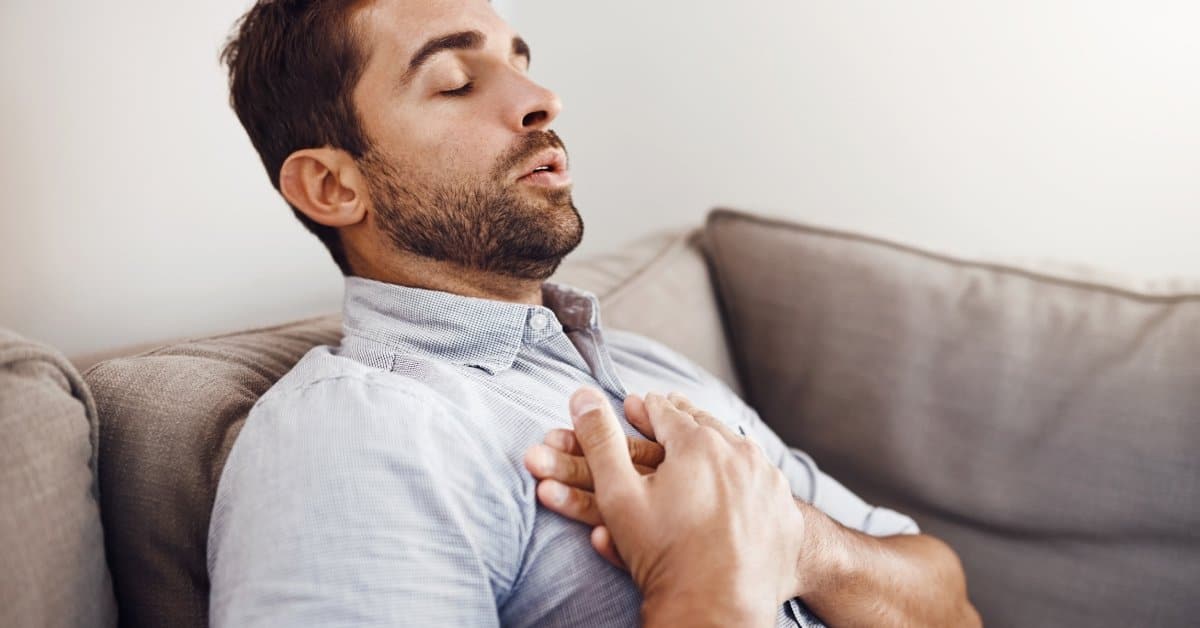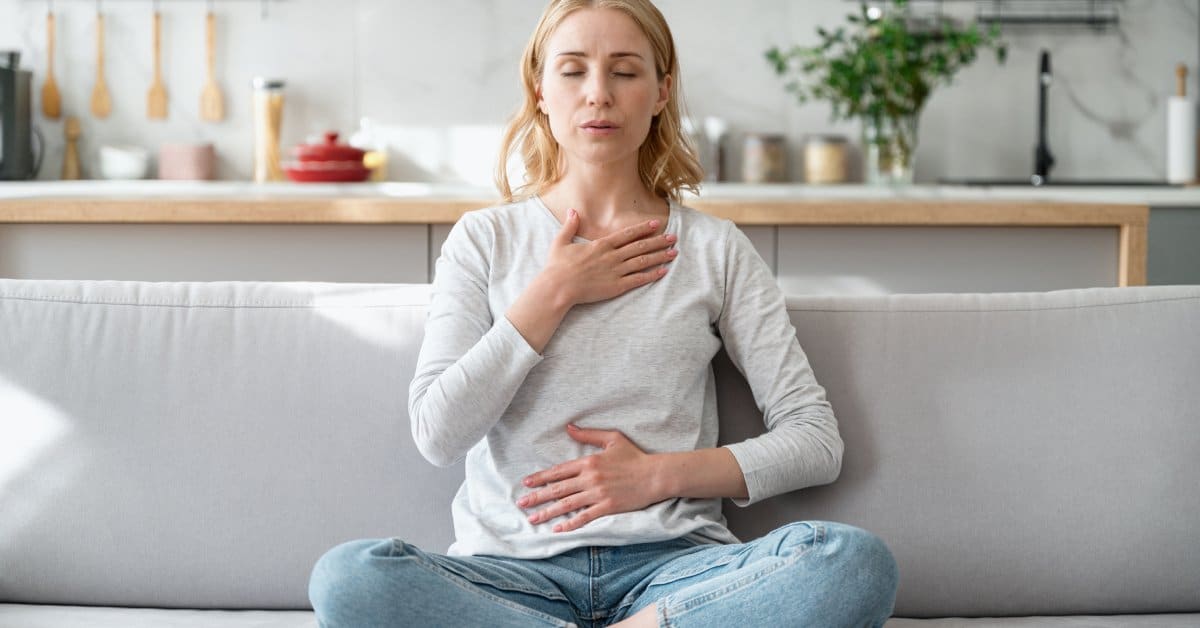Anxiety occurs as the natural response to a sense of danger or stress and is one of the most prevalent mental health issues addressed in adults. However, many don’t realize that anxiety can have profound effects on your physical health as well. Understanding this link is essential for recognizing and managing bodily and behavioral symptoms of anxiety more effectively.
This blog explores how anxiety impacts the body, the physical symptoms it often brings, and actionable steps you can take to manage these effects with the hope of leading a healthier, more balanced life.
How Your Body Reacts to Anxiety
Our bodies have survival instincts to help us handle dangerous or nerve-racking situations. This reaction is the “fight or flight” response. The autonomic nervous system controls this response, and there are two parts of this system: the sympathetic nervous system (SNS) and the parasympathetic nervous system (PNS).
In a stressful situation, the SNS triggers a surge of hormones like adrenaline and cortisol, which preps your body to respond to danger. Once the threat has passed, the PNS kicks in to calm the body and restore it to a state of balance.
While these responses are helpful in genuine moments of danger, chronic anxiety keeps the body in a prolonged state of heightened alert. This long-term cycle can result in serious health consequences, including increased risk for cardiovascular issues, digestive problems, and a persistent feeling of fatigue.

Physical Symptoms of Anxiety
Anxiety often manifests through a range of physical symptoms that can feel overwhelming and difficult to manage. If left unaddressed, these symptoms can lead to long-term impacts on overall health and well-being. We will present seven common physical symptoms of anxiety. Knowing these symptoms can help you address their root cause and find relief.
Rapid Heartbeat
A rapid or pounding heartbeat commonly occurs because when the SNS activates, adrenaline pumps through your bloodstream, causing the heart to beat faster. While this response is instinctive, frequent episodes of rapid heartbeat can place unnecessary strain on the heart and contribute to cardiovascular risk.
Shortness of Breath
Short, shallow breathing—often called shortness of breath—is another common symptom of anxiety. The fight or flight response also causes hyperventilation, which happens when you breathe quickly and take in too much oxygen. This can leave you feeling dizzy, lightheaded, or as though you’re suffocating, making it difficult to focus or stay calm.
Upset Stomach
Anxiety has a surprising yet significant effect on the digestive system. There may be a direct relationship between mental health and gut health, as these symptoms seem to communicate through a complex network called the enteric nervous system, and stress hormones can disrupt this communication. Chronic anxiety often aggravates gastrointestinal issues, and in severe cases, it can lead to conditions like irritable bowel syndrome (IBS).
Muscle Tension or Aches
Muscle tension is one physical symptom of anxiety that commonly goes unnoticed. During moments of stress, your body unconsciously tightens its muscles to prepare for action. However, if this tension becomes chronic, it can lead to headaches, shoulder or back pain, and overall stiffness.
Weakened Immune System
Prolonged anxiety impacts your immune system’s ability to function properly. Elevated cortisol levels suppress immune responses, leaving your body more vulnerable to infections or illnesses. Over time, this vulnerability can make recovering from a cold or virus more difficult, and you may get sick more often.
Sleep Problems
Anxiety and sleep issues often go hand in hand. Many individuals struggling with anxiety report difficulty falling asleep or staying asleep due to racing thoughts and an inability to fully “turn off” their minds. The lack of restorative sleep exacerbates fatigue and affects your mood and productivity during the day, creating a cycle that is hard to break without intervention.
Weight Gain or Weight Loss
Anxiety can also influence weight, although the mechanisms vary from person to person. Some people experience weight gain due to emotional eating or seeking comfort in high-calorie foods. Others may find themselves unable to eat regularly or at all, leading to weight loss. Both scenarios have significant implications for overall health.
Tips for Managing Physical Anxiety Symptoms
Now that we’ve explored the connection between anxiety and physical health in detail, understanding how to cope with symptoms on your own or with the help of a professional can improve your quality of life. Below are practical tips to help ease these symptoms and promote overall well-being.
Complete Breathing Exercises
Practicing controlled breathing can calm the SNS and engage the PNS to restore balance. This practice reduces rapid heartbeats and shortness of breath by focusing on slow, steady inhalations and exhalations.
Engage in Self-Soothing Techniques
Self-soothing techniques such as mindfulness practices, progressive muscle relaxation, or spending time in a calming environment can be highly effective. These activities help your body relax, easing tension and releasing muscle contractions.
Target Negative Thinking Patterns
Identifying and replacing persistent negative thoughts with more constructive perspectives can ease symptoms over time. Working with an anxiety specialist in Miami can provide tailored strategies to shift your mental outlook and foster healthier thought patterns.
Replace Unhealthy Behaviors
Small, intentional lifestyle changes such as regular exercise, a consistent sleep schedule, and eating a balanced diet can significantly improve your mood, energy level, and overall health.
Consider Medication Management
For some individuals, medication is an important part of managing chronic anxiety. When combined with other interventions, prescribed medications can regulate the body’s stress response, reducing physical symptoms over time.

Choose Envision Mindcare for Anxiety Treatment
Addressing the connection between anxiety and physical health helps those with long-term or serious symptoms manage their conditions more effectively. At Envision Mindcare, we offer a comprehensive approach to treating anxiety, focusing on both mental and physical well-being. Our personalized treatment plans combine psychotherapy, medication management, and lifestyle adjustments to help you achieve lasting relief.
If you’re ready to take control of your anxiety and improve your quality of life, reach out or schedule an initial consultation today. Together, we can help you reclaim your peace and restore your health.

